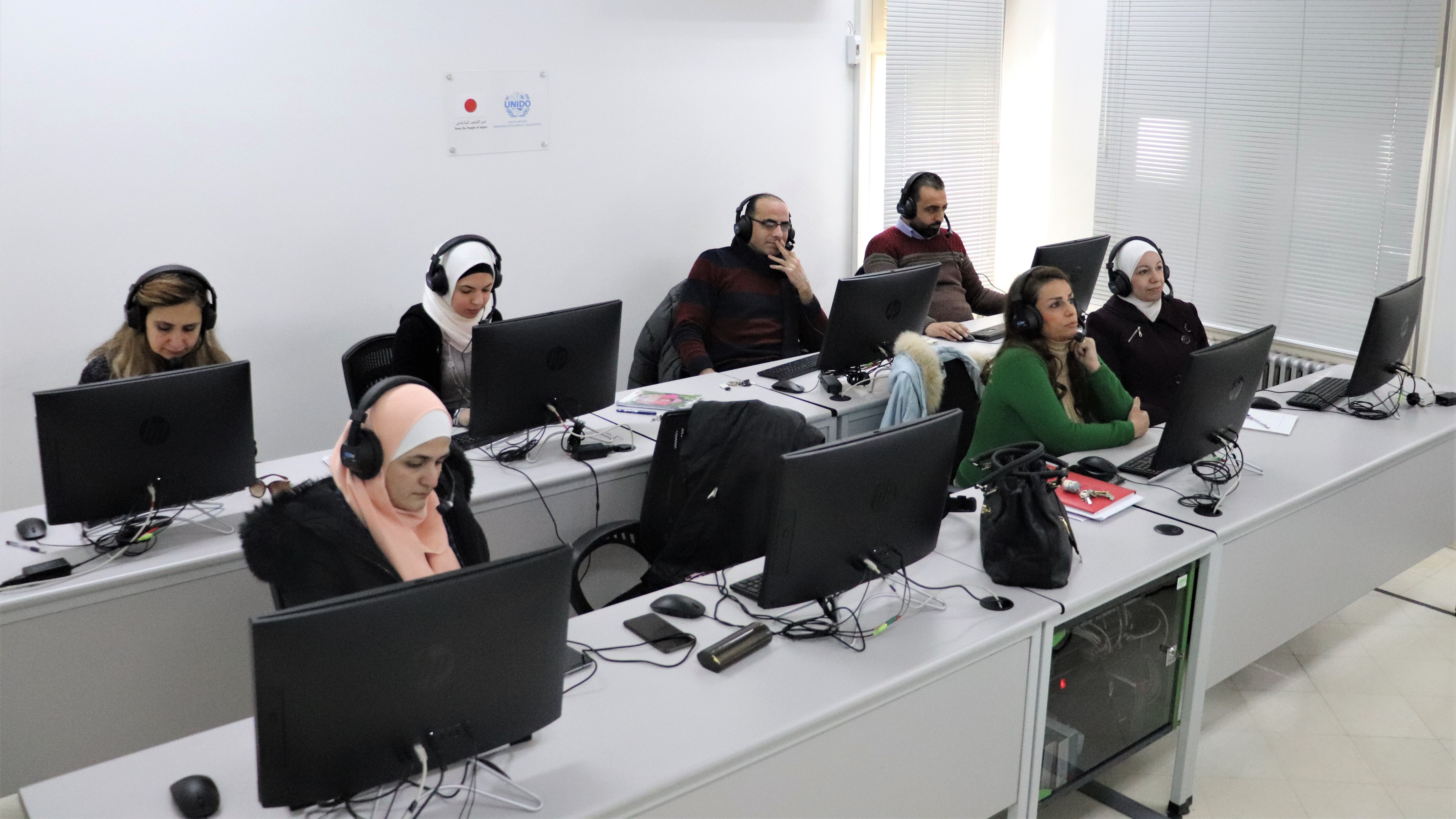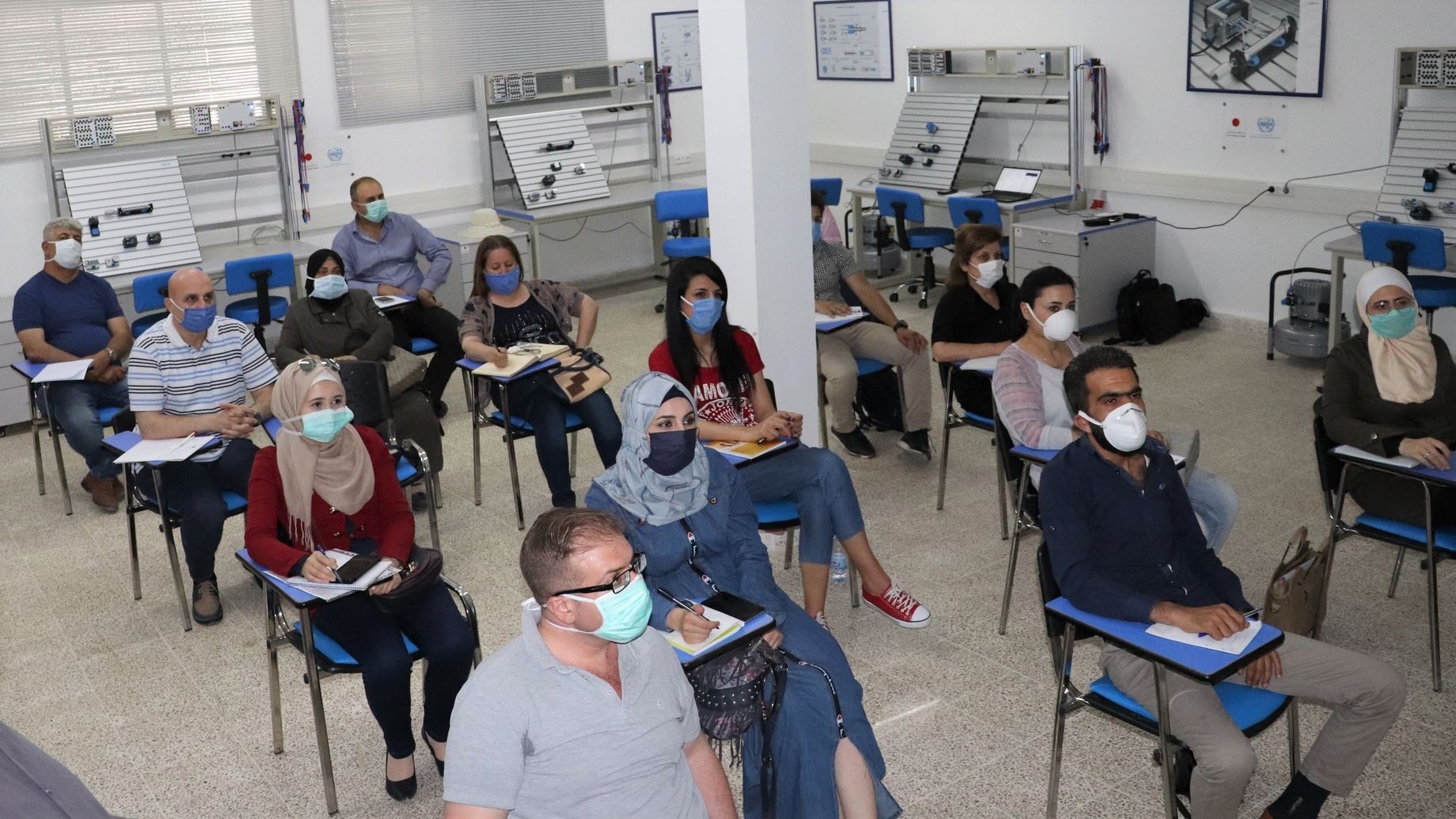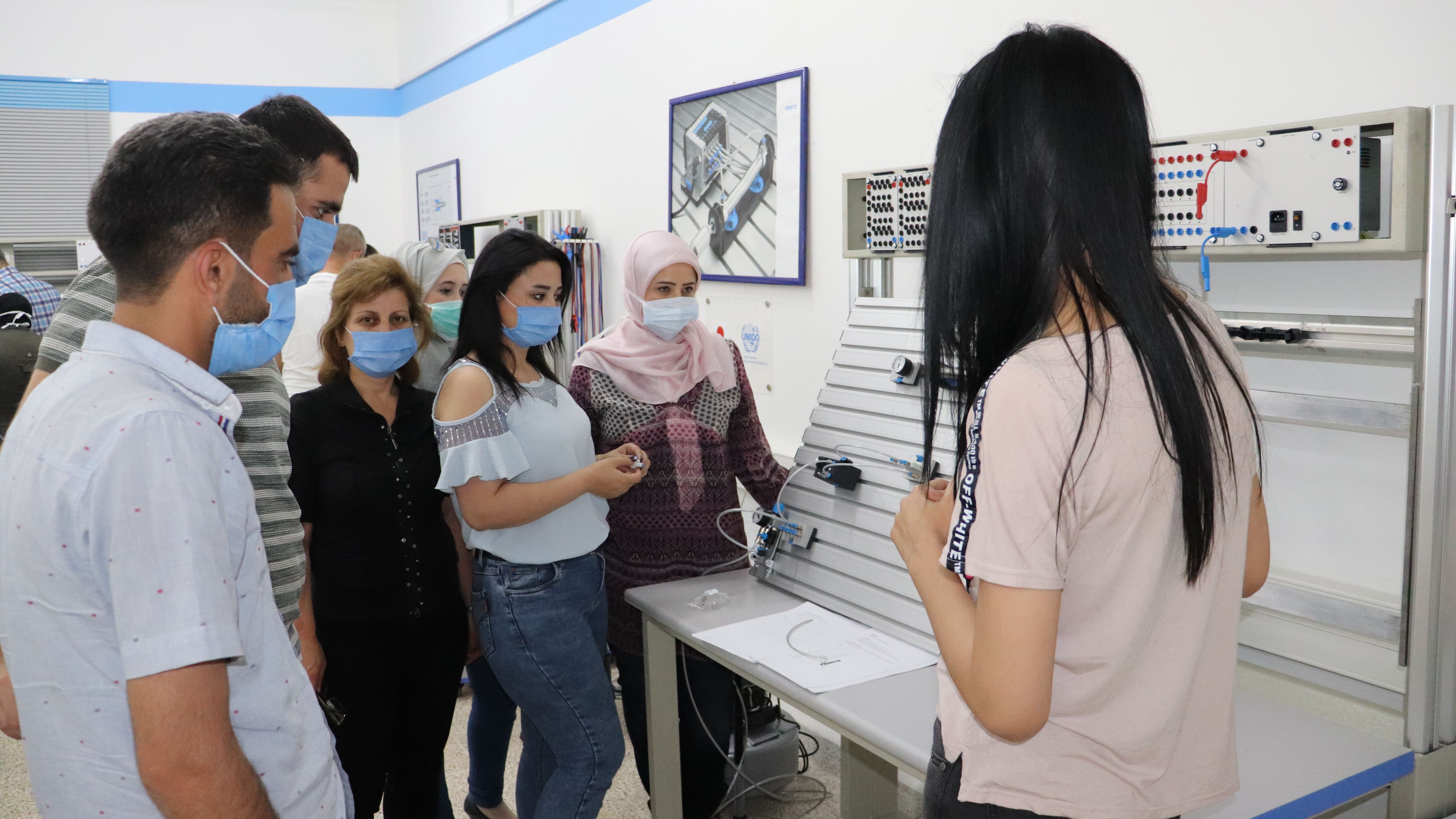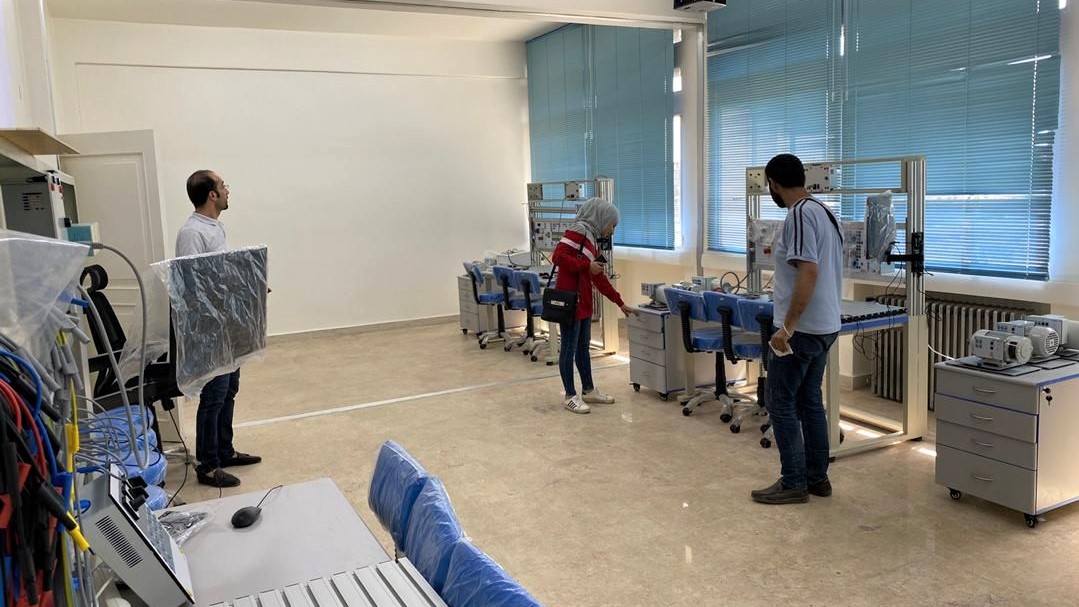

Syria: improving industrial vocational and technical training to accelerate the re-establishment of sustainable livelihoods
29 June 2020 UNIDO

The Syrian conflict has created one of the worst humanitarian crises of our generation. In 2019, an estimated 11.9 million people were still in need of various forms of humanitarian assistance, and the poverty rate had reached 83%. The conflict has also caused massive destruction of physical infrastructure and economic activity, with estimated cumulative GDP loss reaching US$226bn between 2011 and 2016, and unemployment reaching 55% in 2019. (Syria Humanitarian Needs Overview, 2019). More recently, the COVID19 pandemic has made the situation even worse due to the temporary suspension of economic activities. While the lock-down measures have been eased, recent adverse geopolitical conditions are affecting the overall economic situation and might further worsen local conditions.
Despite some signs of recovery, the industrial sector is still suffering from the destruction of infrastructure and high levels of emigration of qualified personnel. Human capital development is severely lacking, with about two thirds of government technical and vocational education and training (TVET) centres and complexes damaged or out of service and suffering from a serious deficit of modern equipment. As a result, people can't do training and so can’t get jobs, severely restricting an early recovery of the industrial sector.
To help overcome this, since 2018, with funding from the Government of Japan, the United Nations Industrial Development Organization (UNIDO) has been supporting capacity-building efforts in Syria by improving technical and vocational training possibilities for disadvantaged groups. Three labs have been rehabilitated at the vocational training centre complexes in Damascus and Aleppo and have been equipped with state-of-the-art equipment from FESTO, a German multinational industrial control and automation company. An interactive English-language lab has been set up at the Management Development Productivity Centre in Damascus with ready-to-use lessons and turnkey interactive exercises to stimulate student’s language learning. Six training courses have been developed, and more than 200 beneficiaries, 30% of them women, have been trained in hydraulics, advanced hydraulics, pneumatic and electro-pneumatic technology, industrial electrical controls, Programmable Logic Controller (PLC) and the English language.


Hassan Alimam, a teaching assistant at Damascus University, said, “My participation in the training of trainers on hydraulics was a great learning experience. What differentiates this training was its mix of theory, tutorial, case studies, and hands-on practical tasks. I am now ready to transfer the gained automation skills to everyone who needs it in the future.”
The UNIDO project has also addressed the need to build future generations’ capabilities through science, technology, engineering, and math (STEM) education, by facilitating LEGO education training for more than 250 primary school students and is collaborating with UNICEF to broaden the scope of outreach.
Of 126 of the participating children surveyed, 89% of children said they can build a robot, 82% stated that they can find multiple solutions to a problem, and 98% said they enjoy learning more about technology. When asked what they want to become when they grow up, 21% said engineering/programming or related fields are their preferred professions, while 33% want to become doctors.
Through these interventions, UNIDO has set the ground for a long-term partnership with UN sister agencies and with the private sector. These strategic partnerships will help maximize impact by leveraging relevant expertise and ensuring that the support reaches those that are most in need.
While humanitarian needs are vast, there is consensus that providing emergency humanitarian assistance alone can no longer sustain the resilience of Syrian people. In Syria, UNIDO is working closely with the communities in Damascus and Aleppo to understand emerging needs to improve the capacities and local skills. This people-centred, context-specific, and prevention-oriented approach will help tackle economic insecurity as an entry point and help support resilience in Syria in the long term.

